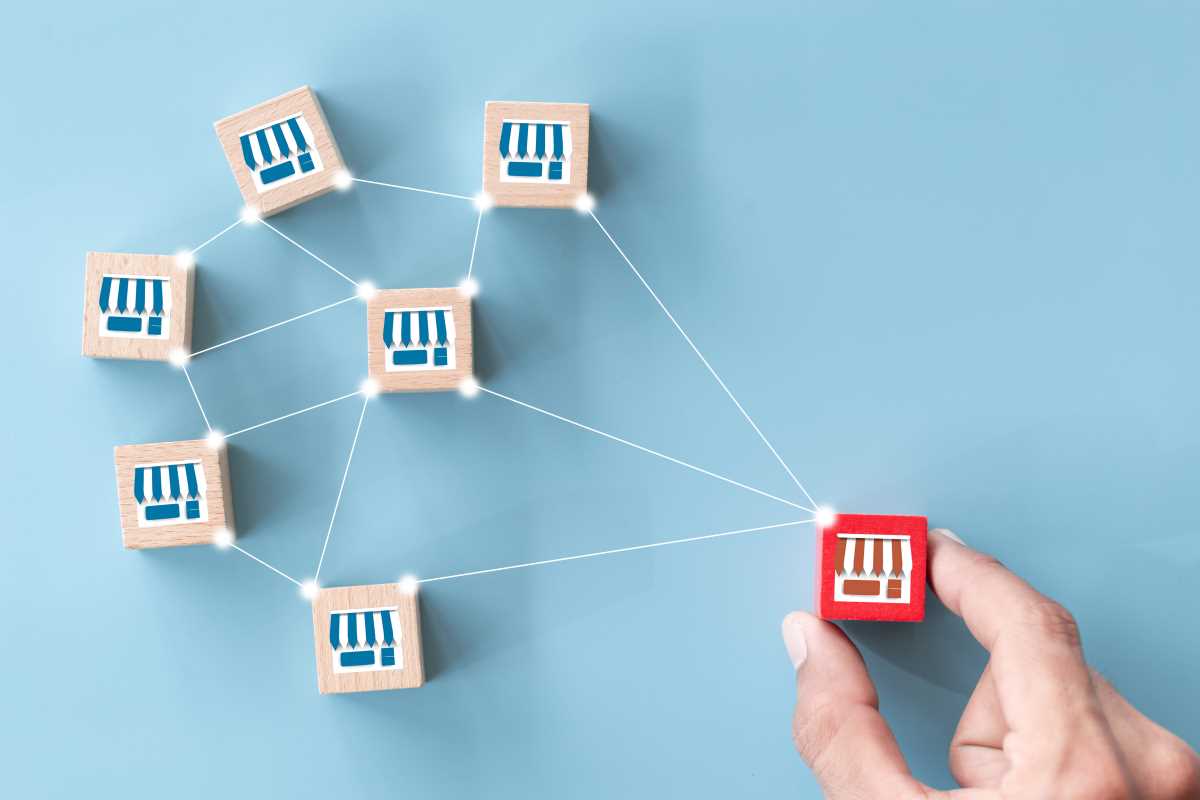Choosing between a franchise and an independent business model is one of the most significant decisions an aspiring entrepreneur will face. Both models come with their own set of opportunities, risks, and challenges, making it essential to carefully evaluate which path aligns with your business goals, personal values, and appetite for risk. While a franchise offers the benefits of an established brand and business system, an independent business model provides complete autonomy and the freedom to build something unique from the ground up. In this comprehensive comparison, we’ll explore the pros and cons of both models in greater detail, offering practical insights to help guide your decision-making process.
Franchise Model
A franchise operates on a business model where a franchisee purchases the rights to run a business under an established brand name, following the franchisor’s prescribed systems and procedures. This model is widely used in industries such as fast food, retail, health and fitness, and hospitality, where brand recognition and operational consistency are critical to success.
Pros of Franchising
Brand Recognition
One of the most attractive aspects of a franchise is the instant recognition associated with the brand. Major franchises, especially in the fast food and retail sectors, have already established themselves in the marketplace. Customers are more likely to trust a familiar brand, making it easier to generate initial sales. This built-in customer base significantly reduces the time it takes to start seeing profits compared to an independent business, which must establish its brand from scratch.
Proven Business Model
A franchise comes with a well-established and proven business model. The franchisor has already worked out the kinks in the system, allowing franchisees to benefit from a ready-made structure for operations, marketing, supply chains, and management. This reduces the risk associated with the trial-and-error process many independent businesses face. The chance of failure is generally lower in franchises, especially if you adhere to the proven system.
Support Systems
Franchisees benefit from substantial training and support from the franchisor. This includes initial training, marketing assistance, site selection advice, ongoing operational support, and sometimes even assistance with hiring and staff training. These resources can be invaluable for first-time business owners or those without previous entrepreneurial experience.
Economies of Scale
Franchises often benefit from the franchisor's larger-scale purchasing power. Franchisees typically have access to discounted inventory, equipment, and supplies, which can significantly lower operating costs. This is particularly advantageous in industries with high product turnover, such as retail and food service.
Cons of Franchising
High Startup Costs
The franchise model often requires a substantial initial investment. Franchise fees, royalty payments, real estate, construction costs, and equipment purchases can be significant. Additionally, these fees do not always include all expenses, such as local marketing or specific operational costs, which can add up quickly.
Limited Operational Control
When you buy into a franchise, you are required to adhere to the franchisor’s guidelines, including set operational procedures, branding requirements, and sometimes even staffing protocols. While this can be advantageous in terms of consistency and risk mitigation, it can limit your creativity and autonomy. Franchisees cannot significantly alter the product, service, or overall customer experience unless approved by the franchisor.
Ongoing Fees
In addition to the initial investment, franchisees must pay ongoing royalties, advertising fees, and sometimes other ongoing costs. These can take a considerable percentage of your profits, which limits the potential for financial independence compared to running an independent business.
Reputation Risk
Franchising offers the advantage of brand recognition, but it also comes with a risk. If another franchisee operates poorly or damages the brand’s reputation (for example, through poor service or low-quality products), it can affect your business as well. The reputation of your franchise is tied to the overall brand, and any negative publicity can hurt your bottom line.
Independent Business Model
An independent business is one where the owner has full control over every aspect of the business, from branding and marketing to operations and product offerings. This model is well-suited for entrepreneurs who are highly motivated to build their vision from the ground up and are comfortable with the risks that come with creating something unique.
Pros of Independent Businesses
Creative Freedom
One of the biggest draws of an independent business is the freedom to make all decisions yourself. You can create your own brand identity, set your own pricing, and decide on your product offerings. This creative control allows entrepreneurs to express their unique vision, whether that’s through product innovation, branding strategies, or customer experiences. For entrepreneurs who have a specific idea they want to bring to life, the independence of this model can be highly satisfying.
Lower Initial Costs
Starting an independent business can sometimes be less expensive than buying into a franchise, as there are no franchise fees or royalty payments. However, it’s important to note that startup costs can vary greatly depending on the industry and the scale of the business you want to create. While you may avoid the hefty fees associated with franchising, you will still need to account for product development, marketing, and operational costs.
Full Control Over Operations
Independent business owners have complete control over their operations. This autonomy allows for quick adaptability to changing market conditions. If an entrepreneur sees an opportunity for growth or an area of improvement, they can act swiftly without waiting for approval from a franchisor. This flexibility is especially valuable in a dynamic market where consumer preferences and industry trends are constantly shifting.
Building Your Brand
When you start an independent business, you have the opportunity to create a brand that resonates with your target market. Building a strong, unique brand identity can lead to deep customer loyalty and emotional connections. While this takes time and effort, the rewards of having a recognizable, independent brand can be immense, especially in industries where personal connections and authenticity matter to consumers.
Cons of Independent Businesses
Higher Risk
Without the built-in customer base and proven business systems that come with franchising, independent businesses face higher risks. There is no safety net or established brand to fall back on. It may take time to establish your product, gain customer trust, and build recognition in your market, which can be especially challenging for first-time entrepreneurs.
Lack of Support
Independent business owners do not have the same support systems as franchisees. You won’t have a parent company guiding you or providing you with training and resources. Every decision, from marketing strategies to hiring practices, falls on your shoulders. This can be overwhelming for new entrepreneurs, especially those who are not familiar with all the ins and outs of running a business.
Brand Recognition
Unlike franchises, independent businesses must create their brand from scratch. It can take years to build the same level of customer loyalty and recognition that a franchise already enjoys. For businesses that rely on immediate market penetration or trust, this can be a significant challenge.
Economies of Scale
Independent businesses typically struggle to achieve the same economies of scale as franchises, which means they may face higher operational costs. Without the bulk purchasing power available to franchises, independent businesses often pay more for supplies, which can impact profitability.
Final Considerations
Both franchise and independent business models present valuable opportunities but cater to different types of entrepreneurs. Franchises offer the security of an established brand, proven systems, and ongoing support, making them ideal for individuals seeking a structured and lower-risk path to business ownership. On the other hand, independent businesses appeal to those who value creative control, autonomy, and the opportunity to build a unique brand. The decision ultimately depends on your personal preferences, risk tolerance, and long-term business goals. By carefully weighing the pros and cons of each model, you can make an informed decision that aligns with your entrepreneurial vision and sets you on the path to success.
 (Image via
(Image via





